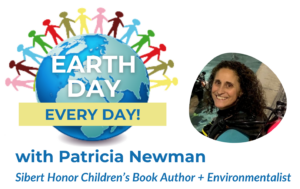Are you a stressed parent who wants your children to have an edge when they go to school? Well, it seems that many of us are pushing our children to advance beyond their developmental capabilities. A recent New York Times article says, “parents have begun pressing their kindergartners and first-graders to leave the picture book behind and move on to more text-heavy chapter books.” Recently The Today Show took aim at Your Baby Can Read–a program of flash cards, pop-up books and DVDs. Shockingly (note the sarcasm), the babies are merely memorizing, and reading experts from Cornell, Harvard, NYU, Tufts (the list goes on) declare unequivocally that the vast majority of children are not developmentally ready to read until they are four or five years old. The best way to teach your children (according to Jeff Rossen of NBC News)? “You talk to them, you interact with them, you sing to them, and you play with them.”
Rossen forgot one important thing. You READ to them. Reading aloud is the foundation for literacy development. It is the single most important activity for reading success (Bredekamp, Copple, & Neuman, 2000).
Parents’ Call to Action for Toddler Literacy
1) Instill in your children a deep love of literature through a wide variety of stories, poetry, and drama. This includes picture books! (And I say this not only because I write them.) The strong connections you make with your children when you read together help them make sense of the world. Picture books are like theater–good guys, villains, conflict, action, and a resolution. They are carefully crafted to address a child’s developmental milestones and improve literacy.
2) Teach your children to appreciate the rhythm and the power of words. Ask them to recite a much-loved poem, or take the part of Goldilocks in a family puppet show or skit. Play word games. Create silly poems of rhyming words. Reading boots a child’s vocabulary far faster than flashcards.
3) Put away the work sheets, the flash cards, and the phonics for now, and concentrate on the beauty and the power of language itself. Letter recognition and letter sounds will follow, not from a mandate, but because your child is curious and wants to further her own sense of the world. Think of it this way–how do you like to learn? Flash card memorization or experiences that connect to you personally? The time you spend on flashcards is time that could be spent curled up on the sofa reading a great picture book!
4) Use picture books as a jumping off point for other kinds of play. For your children to fully understand and remember what they have read, the information must be meaningful to her in the context of her experiences and development. Let them pretend.
Most of all, your children will become lifelong readers if you make reading fun. Let your toddlers be toddlers. Dive into the world of picture books!





Leave a Reply
Your email is safe with me.